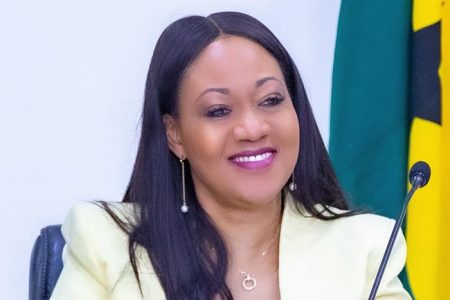Despite telecasting the Inter-Party Advisory Committee (IPAC) meeting live as requested by the National Democratic Congress (NDC), the party once again declined to present the evidence it claims to have regarding irregularities in the voters’ register.
This historic meeting marked the first time that the media, civil society organizations (CSOs), and the diplomatic community were permitted to participate as observers.
The event, broadcast live to the public, formed part of the Electoral Commission’s (EC) efforts to deepen transparency ahead of the December 7 elections.
Voter register discrepancies solutions
The meeting extensively addressed the challenges associated with the Provisional Voters’ Register and the EC’s efforts to strengthen its integrity.
Before the meeting, the NDC had raised concerns about the register’s credibility, demanding an independent forensic audit to ensure its integrity.
However, Jean Mensa, Chairperson of the EC, emphasized that calls for a forensic audit were premature, as the commission had not exhausted all available processes to clean and rectify the register.
Provisional register: A work in progress
Mrs. Mensa reassured stakeholders that the current voters’ register is still a draft and not final, stating, “The voters’ register is a draft, not the final register.
It is not perfect and not final.”
“Right after the registration exercise, we institute the District Registration Review Committees who sit in all districts to hear challenged cases presented by the citizenry. And we have the political parties, traditional authorities, the security agencies as part of this committee,” she said.
Following this, Madam Mensa said the process moves to adjudication, where political parties work with the EC IT team to determine whether individuals have engaged in multiple registrations.
“Here again, we have representatives of the political parties who work with the Commission to establish the rules and to take the decisions concerning these persons.”
Furthermore, she said the EC holds an exhibition of the provisional register, which allows for an inspection and correction of discrepancies.
Afterward, the EC Chairperson said the Commission has a sitting of District Registration Review Officers— who are magistrates appointed by the Chief Justice to every district to hear and rule on cases, including objections to individuals on the voters’ register.
“It is followed by the review and authentication of the magistrates appointed in each of the districts. Following their reviews and rulings of each of the cases, our district officers then implement the decisions of the magistrates.
“It is followed by a verification of the implementation of these decisions by our regional directorates headed by our regional directors.
“Following that, we at the head office compose a team made up of IT and Electoral services who then verify that all the decisions and recommendations provided have been fully implemented. It is after this stage that the voters register is produced,” Mrs Mensa added.
She emphasized that the EC had implemented a comprehensive process to address discrepancies, starting from district-level committees to adjudication by magistrates and verification at both the regional and headquarters levels.
NDC’s Calls for Forensic Audit Premature, Says EC
Despite the NDC’s demand for a forensic audit of the EC’s Information Technology systems, Mrs Mensa stressed that the process of finalizing the register had not yet been completed.
As part of its commitment to transparency, the EC plans to make the provisional voters’ register available online for public verification.
Mrs Mensa further noted that the NDC had failed to provide any concrete evidence to support its claims of discrepancies, despite repeated invitations from the commission to substantiate their allegations.
Political parties urged to engage constructively
Mrs. Mensa called on all political parties, including the NDC, to engage constructively with the EC, reiterating that the commission remains committed to delivering a credible, accurate register.
She assured the public that all efforts were being made to ensure a free and fair election process.
NDC declines to provide evidence
Dr. Edward Omane Boamah, Director of Elections for the NDC, reaffirmed the party’s demand for a forensic audit of the EC’s Information Technology systems to enhance confidence in the voters’ register.
“It would only take forensic audit of the I.T. systems of the EC to establish the footprints of exactly where the illegal voter transfers took place,” he said.
Mr Boamah said it was “not strategic” for the NDC to provide the EC with the full data backing its claims, adding that the party would meet to decide on the next line of action after the meeting.
Mr. Peter Mac Manu, Director of Elections for the New Patriotic Party (NPP) Campaign Team, expressed the party’s strong belief in the Electoral Commission’s methods, describing them as the “best” legally prescribed approach to address discrepancies in the voters’ register.
Mr. Justin Kodua Frimpong, NPP General Secretary, labelled the calls for a forensic audit as “needless” and challenged the NDC to provide comprehensive data supporting their claims for review.
While supporting calls for collective input to clean the register, some of the political parties appealed to the EC to plan for voters in underserved communities who may not be able to participate in the online voters’ exhibition exercise.
The EC and various political parties agreed to work together to address the challenges related to the Provisional Voters’ Register ahead of the 2024 General Election.
They acknowledged that ensuring a clean voters’ register was a collective responsibility, and thus, all stakeholders must contribute to make the register more robust.
First-time voters and collective responsibility
Data provided by the EC indicated that as of September 30, 2024, the total number of registered voters stood at 18,772,795, comprising 9,690,173 males and 9,082,622 females.
The total number of first-time voters was recorded at 708,282.
All political parties agreed that ensuring a clean voters’ register was a collective responsibility and emphasized the importance of working together to make the register more robust.
- GMA furious over suspension of duty waiver on vehicles - 3 April 2025
- Thursday, April 3, 2025 Newspaper Headlines - 3 April 2025
- Trump slaps tariffs: Ghana, UK-10%, EU-20%, others-50% - 2 April 2025

